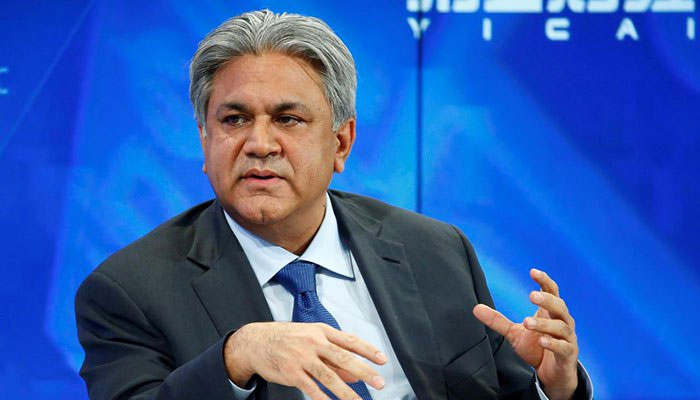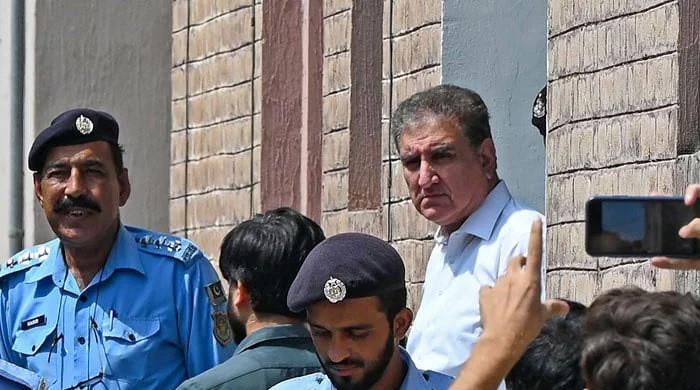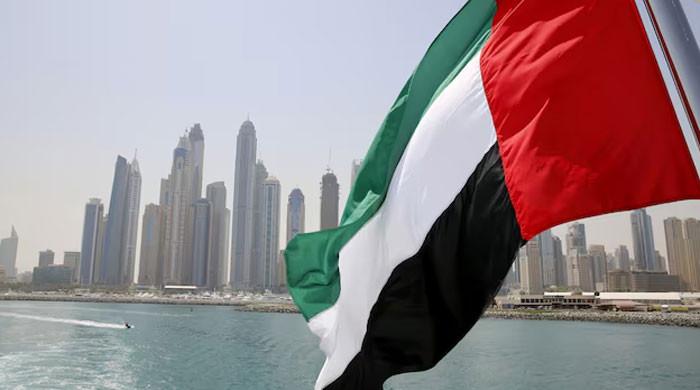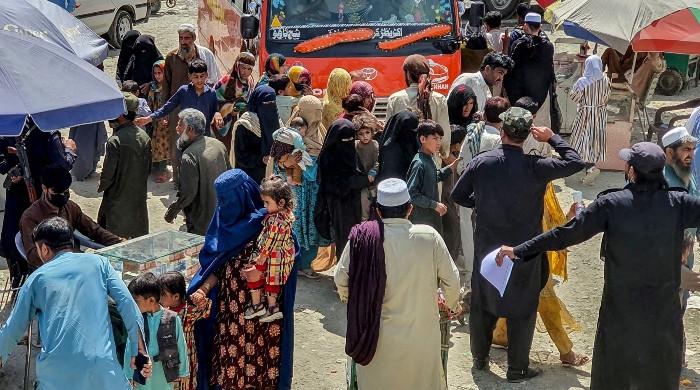Arif Naqvi’s lawyers tells court UK appropriate place for trial, not US
Naqvi has approached court to refuse extradition to US where former Abraaj Group founder faces fraud and money laundering charges
June 24, 2020

LONDON: Pakistani businessman Arif Naqvi has told an extradition judge at the Westminster Magistrates’ Court in the UK that he should not be allowed to be extradited to the US for trial in relation to the charges on the Abraaj Group.
Naqvi has approached the court to refuse his extradition to the US where the former Abraaj Group founder and chief executive faces fraud and money laundering charges. Arif Naqvi has maintained that there was no wrongdoing.
Naqvi was arrested in London a year ago on the US request and Scotland Yard has said that he has not done any wrongdoing in Britain and his arrest was made only on Washington's request.
Naqvi’s lawyers have told the court that majority of the Abraaj Group’s operations were conducted in the UK and that makes the UK the appropriate place or “forum” where his criminal case should be heard.
“The defence invites the court to discharge Mr Naqvi on two grounds, namely that: Mr Naqvi’s extradition is barred by reason of forum and his extradition would be incompatible with Article 3, ECHR (European Convention of Human Rights),” according to the defence’s skeleton argument placed before the court.
Citing a previous case (Love v Government of the United States) as precedent, Naqvi’s lawyers have argued that Article 83A of the UK’s Extradition Act 2003 stipulates a person is barred by reason of forum if the extradition would not be in the interest of justice.
The section’s “underlying aim is to prevent extradition where the offences can be fairly and effectively tried here, and it is not in the interests of justice that the requested person should be extradited,” according to Naqvi’s lawyers who have cited the previous case.
Arif Naqvi, 59, lives at his home on bail near Hyde Park Corner. He’s one of the few Pakistanis who managed funds at the global level in billions of dollars.
If Arif Naqvi, who was born in Karachi and retains strong connections with Pakistan, is extradited to the US and convicted then he could face up to 291 years in jail. His lawyers have told the court that such a long sentence "would amount to an effective life sentence”.
Naqvi’s lawyers have argued that since a “substantial measure of Mr Naqvi’s relevant activity was performed in the UK” therefore the UK would be the most appropriate forum for his trial and not the US.
“London was where the investor coverage team sat and produced marketing materials for investors and was where all the major new initiatives of the Abraaj Group were incubated (healthcare, real estate, special situations, energy and credit) … the majority of our external professional advisers were London-based, as were many of the Abraaj Group’s stakeholders,” Abraaj Group’s Adnan Siddiqui is cited as saying in the defence arguments.
“The axis of the Abraaj Group was between Dubai and London…London was where Arif Naqvi sat when he wasn’t on a plane or in Dubai.”
Siddiqui also explained that, “the US was of little or no significance to Abraaj although it became more important in terms of seeking investment into the Abraaj Global Healthcare Fund and the Abram Private Equity Fund VI”.
Arif Naqvi’s lawyer’s have also cited Ahamed Vahid, a former senior vice president for Abraaj’s private equity business, who said: “If the group had a beating heart it was in Dubai, but its mind and control was wherever Arif was, which was often in London, which is where the main investor coverage operation was.”
The defence team has told the court that Arif Naqvi resided mostly in London alongside a former managing partner, Sev (Sivendran) Vettivetpillai. Naqvi’s lawyers have told the court that Naqvi held most meetings in London, and also had a big office in the UK capital, all management meetings took place in London and Abraaj’s legal advisers were based in London.
Lawyers have argued that it would be wrong to suggest that the place where most of the loss or harm occurred or was intended to occur was the US and that the alleged loss/harm/victims were diverse and predominantly outside the US. Naqvi’s lawyers have argued that the interests of US victims “should not be over-stated” and that there is nothing in the materials filed by the US prosecutors suggests “there would be any impediment whatsoever to the prosecution of this case in the UK.”
The defence lawyers have argued “the strength of Mr Naqvi’s connections to the UK are such that his prosecution” in the UK “would clearly be in the interest of justice”. Naqvi’s lawyers have told the court that Naqvi’s wife and sons were educated in the UK, live in the UK permanently and that the former head of Abraaj has been a resident of the UK since 2003.
The lawyers have appealed to the court to bar Naqvi’s extradition to the US “because it would not be in the interests of justice”.
The court has been told that Arif Naqvi is not in good health as he recently recovered from COVID-19.
Naqvi’s lawyers have argued that there is evidence to suggest that the conditions of his pre-trial detention at two facilities in New York "for any material length of time (beyond a week)" violate Article 3 of the European Convention on Human Rights.
The two facilities where Naqvi would be held include the Metropolitan Correctional Centre (MCC) and the Metropolitan Detention Centre in Brooklyn and MCC is where the financier and sex offender Jeffrey Epstein was held and died. During Karachi businessman Jabir Motiwala’s trial at the same court, the defence had also taken the same ground about the condition of these facilities.











